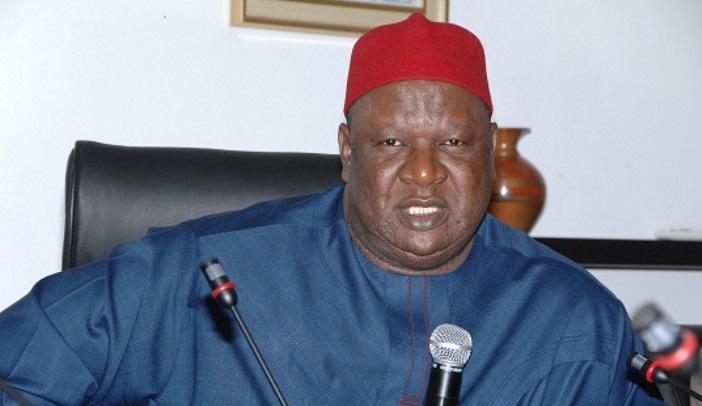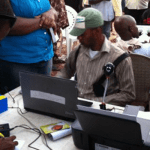WHY would Anyim Pius Anyim be awarded the 2020 Zik’s Prize for Political Leadership? A crisp answer could be, why not?
The brevity of the answer would do injustice to both the Zik Leadership Award, named after Nigeria’s first Senate President, first President of Nigeria, Dr. Nnamdi Azikiwe, and Senator Anyim, whose tenure as President of the Senate remains a reference point for his sterling performances.
Anyim was the third of three Senate Presidents in the first four years of the return to democratic governance. Others before him were impeached while he completed the tenure from August 2000 to May 2003.
“I hold to politics of inclusiveness and it is impracticable without looking at nationalism in Nigeria’s politics,” he recounted how he waded through those testy days to stabilise leadership of the National Assembly.
Zik Leadership Award is a recognition for leadership along the lines Dr. Azikiwe espoused. Zik’s leadership was essentially rooted in nationalism, inclusiveness, and peaceful engagements in politics.
Anyim weighs in effectively with Zik’s principles as the centre of his politics. For him, the cure to insecurity that bestrides the land lies in inclusiveness as the pillar of national policies. He practised it in the Senate and should know.
His rise from his native Ishiagu, Ebonyi State to the blitzkrieg of national politics was not noticed until be became Senate President at 39.
Read Also: GMD UBA, Kennedy Uzoka wins coveted Zik Leadership Award
Pius’ birth on 19 February 1961, did not cause much celebration. His mother’s loss of six other male children who never lived for more than two years made his arrival a matter for similar speculations.
His leadership priorities draw from a simple life hewed in daunting years of tough decisions on sustenance. Always a hard worker, he dares challenges. He hawked bread, worked in a brewery, and almost missed going to school. He survived these and rose to be one of Nigeria’s topmost leaders with abhorrence to violence and a dedicated to Nigeria’s nationalism.
Education at Ishiagu High School, Federal School of Arts and Science, Aba, and Imo State University, where he read Law, finishing in 1987, left him with deep lessons about life which have been the mainstay of his relations with people whether at work or in politics.
The National Youth Service Corps programme, with Directorate for Social Mobilisation, a Federal Government agency, in its Sokoto office, ushered him into a career in the civil service. He worked at the National Commission for Refugees, NCR after a stint at the Abuja headquarters of the Directorate for Social Mobilisation. These exposed him more to Nigeria and its peoples.
Anyim’s entry into politics was quiet. His election under United Nigeria Congress Party, UNCP, to the Senate in 1998, at 37, ended with General Sani Abacha’s demise. In 1999 he was elected Senator and served one term during which he was the Senate President.
“When I won a Senate seat in 1998, God made it possible. I heard His voice clearly asking me to contest,” Anyim states in his biography that is in the works. “He made things possible again in 2000, when I later became Senate President ahead of more known politicians.” Anyim could easily be credited with laying the foundation of the structure and frame of the National Assembly.
He did not run for a second term after he sensed that the tension another tenure would ensure could escalate violence in Ebonyi. He had by August 2002 suggested that all elected officials should serve one term to minimise heating up the polity which was still on trial. “If anyone is running for a second term, I will not support him, I will not campaign for him, and I will not visit him if he wins,” Anyim said in a proposal that was meant to offer inclusiveness to many who were waiting to serve. Nobody heeded his advice.
Investments in running for second terms have since become huge distractions for those in office and the reason for their decisions and indecision.
He was in podium position to be PDP national Chairman in 2007 if an election was held. The party instead appointed Chief Vincent Ogbulafor, a former PDP national secretary and ex-Minister from Abia State.
In January 2010, Anyim led a delegation of 41 eminent Nigerians that called on President Umaru Yar’Adua to urgently transmit a letter of his incapacitation to the National Assembly to salvage the nation’s democracy. He praised the Senate when it passed a resolution on 9 February 2010 to make Vice President Good Jonathan Acting President.
After his departure in 2015 as Secretary to the Government of the Federation, SGF, under President Goodluck Jonathan, which he handled with uncommon patriotism and diligence, Anyim has revved up his politics engines again as he joins the race for the Presidency.
When Anyim turned 60 last February, Femi Adeshina, President Muhammadu Buhari’s media aide sent this message, “The President congratulates the former Secretary to the Government of the Federation (SGF) on his many milestones, particularly becoming Senate President at a relatively young age, and handling the responsibility with maturity and wisdom.
“As the former SGF turns 60, President Buhari urges more commitment to nation building with the wealth of knowledge and experience gathered from many years of serving in government.”
Once asked if he would run for President in 2023, Anyim had said he was waiting to hear from that clear voice that told him to run for the Senate in 1998. He believes in the approval of the Almighty in his political quests.
He has indicated interest to run for President of Nigeria in 2023. “I offer myself again for service to Nigeria,” Anyim has said. Now that he has heard the voice, what type of politics would he promote?
He said his was politics of Nigerian nationalism and ending the insecurity that has denied Nigerians opportunities to explore their creative energies through inclusiveness.
Congratulations Senator Anyim on your latest award. The future beckons with more possibilities.
•Isiguzo contributed this piece from Aba











